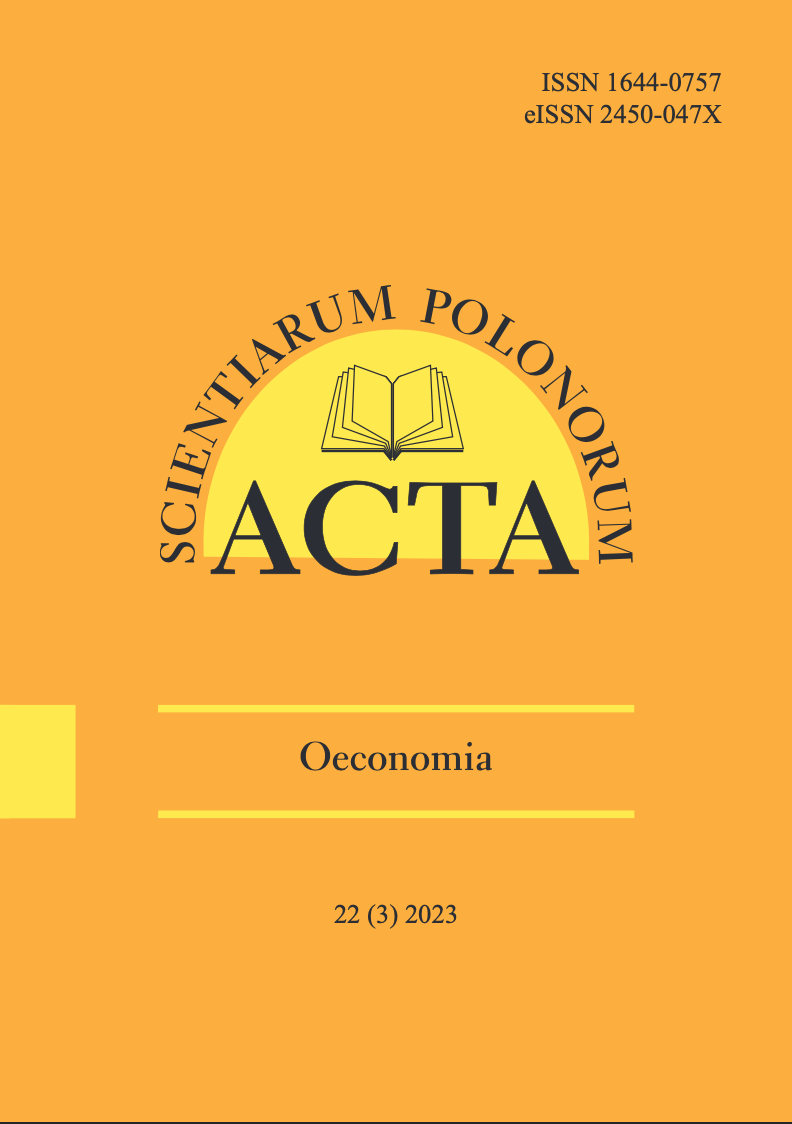ANTICIPATED FOOD EXPENDITURE ACCORDING TO PERSONALITY TRAITS DURING THE COVID-19 PANDEMIC IN POLAND
ANTICIPATED FOOD EXPENDITURE ACCORDING TO PERSONALITY TRAITS DURING THE COVID-19 PANDEMIC IN POLAND
Author(s): Anna Zielińska-Chmielewska, Dobrosława Mruk-Tomczak, Renata Marks-BielskaSubject(s): Health and medicine and law, Socio-Economic Research
Published by: Szkoła Główna Gospodarstwa Wiejskiego w Warszawie
Keywords: food expenditure; consumer behavior; personality traits; Big Five analysis; COVID-19 pandemic; Poland;
Summary/Abstract: Aim: The practical aim of the study is to recognize the changes in consumers’ purchasing patterns according to personality traits, which can be used for higher purposes (e.g., to consciously influence sustainable consumption by government agencies on a country level). Methods: The subject scope of the research was the systematic literature review of determinants of food expenditure and the assessment of consumer behavior. The research sample is representative (N = 1,000), and the study met the criterion of representativeness. The article presented only statistically significant dependencies between anticipated changes in food expenditure according to personality traits measured by Big Five analysis. Results: The study’s applicative findings are that there are significant statistical dependencies between different types of personalities along with the gender of a consumer and anticipated food expenditure during the COVID-19 pandemic in Poland. The research shows how to restore sustainable consumption in Poland after the COVID-19 pandemic. Conclusions: Thoughtfully crafted food policy strategies, such as subsidizing specific priority food items, can impact the consumption patterns of selected foods. These strategies have the potential to either increase or decrease the intake of particular food items and can exert influence over both the quantity and quality of the food consumed by citizens. State institutions can make beneficial changes in citizens’ diets by subsidizing low-processed and organic foods and/or imposing additional fees on stimulants and unhealthy food items. The research adds valuable insights to the existing knowledge on food expenditure and consumer behaviors. It also offers practical advice and guidance to effectively support the post-pandemic era in Poland and Europe.
Journal: Acta Scientiarum Polonorum. Oeconomia
- Issue Year: 22/2023
- Issue No: 3
- Page Range: 87-97
- Page Count: 11
- Language: English

